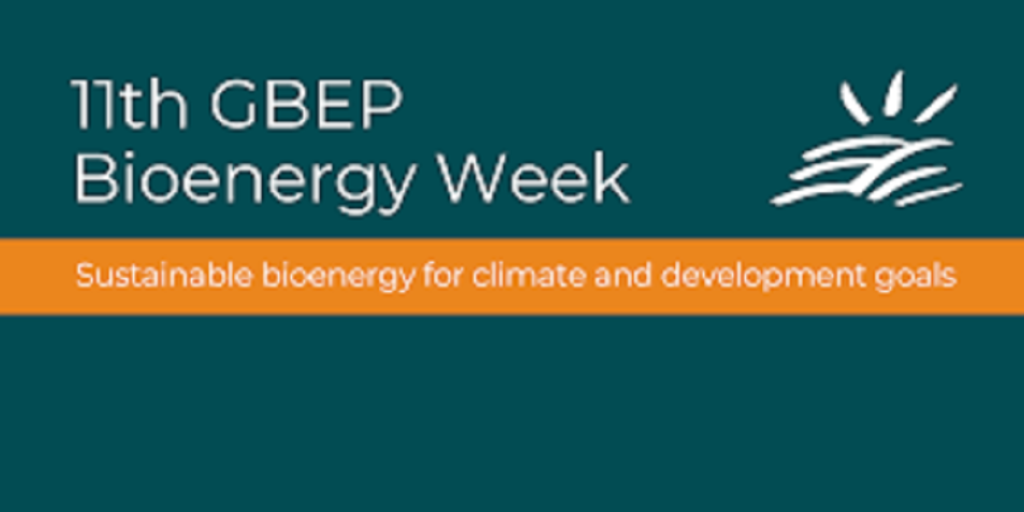The 11th Bioenergy Week organized by the Global Bioenergy Partnership (GBEP) commenced today at the Food and Agriculture Organization of the United Nations (FAO) headquarters. This pivotal event has drawn over 120 stakeholders from 27 countries, including government representatives, industry leaders, researchers, and experts. Running until June 21, the conference aims to propel discussions and initiatives on promoting sustainable bioenergy as a vital solution for achieving the UN Sustainable Development Goals (SDGs) and the Paris Agreement on Climate Change.
Bioenergy: A Multifaceted Solution for Global Challenges
FAO Deputy Director-General Maria Helena Semedo, in her opening remarks, emphasized the transformative potential of bioenergy in agrifood systems. “Our FAO’s Energy-Smart Agrifood Systems programme recognizes that sustainable bioenergy is a key opportunity to diversify farmer income, increase locally available energy sources, and enhance the circularity of organic waste. This builds farmers’ resilience to climate change impacts and contributes to decarbonizing many economic sectors, in alignment with FAO’s Strategy on Climate Change 2022-2031,” Semedo stated. She further highlighted that sustainable bioenergy can play a crucial role in enhancing food security and nutrition.
A Collaborative Effort for Sustainable Bioenergy
The Bioenergy Week is a collaborative effort between FAO and the Italian Ministry of Environment and Energy Security, both founding members of GBEP. Established in response to the Gleneagles Plan of Action in 2005 by the G8 +5 countries, GBEP has been instrumental in advancing knowledge and public awareness of modern bioenergy. The partnership has also developed widely recognized sustainability indicators for bioenergy, essential for assessing the sustainability of various bioenergy pathways.
Role of Bioenergy in Climate Action
Bioenergy, derived from organic materials like plants, agricultural residues, animal manure, and municipal waste, is the largest source of renewable energy according to the International Energy Agency (IEA). The Intergovernmental Panel on Climate Change (IPCC) acknowledges bioenergy’s potential as a large-scale mitigation option supporting diverse energy system segments. FAO underscores the importance of developing bioenergy sustainably, taking into account local environmental, social, economic, and political contexts, as outlined in its Climate Change Strategy for 2022-2031.
Throughout the week, participants will engage in high-level panel discussions on various themes, including policy and regulatory frameworks for sustainable bioenergy development, the intersection of bioenergy and bioeconomy, and clean cooking solutions. Francesco Corvaro, Italy’s Special Envoy for Climate Change, highlighted the need for interdisciplinary collaboration to tackle climate change, expressing optimism about the introduction of new bioenergy technologies.
2024 GBEP Youth Award: Inspiring the Next Generation
Ahead of the conference, FAO hosted the first Bioenergy Youth Day in partnership with the Youth and United Nations Global Alliance (YUNGA). The event, attended by over 100 high school and university students, aimed to raise awareness about sustainable bioenergy’s role in addressing global challenges. During a ceremony, Czaneil Gomez, an engineer from the Philippines, was awarded the 2024 GBEP Youth Award for her research on an enhanced rice straw biogas pilot facility. “Receiving this award recognizes my passion and dedication for finding sustainable approaches for rice farming communities in the Philippines,” Gomez said.
The Youth Day also included interactive sessions, workshops, and presentations by bioenergy experts, offering young participants valuable insights into feedstock production, conversion technologies, and the socio-economic impacts of sustainable bioenergy.
The GBEP Bioenergy Week serves as an essential platform for exchanging views, best practices, and lessons learned in meeting global energy needs and reducing greenhouse gas emissions through sustainable bioenergy. The conference underscores the importance of ensuring food security and environmental sustainability while advancing bioenergy initiatives.
As stakeholders continue to deliberate and collaborate, the hope is that sustainable bioenergy will play a pivotal role in addressing climate change, ensuring clean energy access, and fostering global development in alignment with the SDGs.

